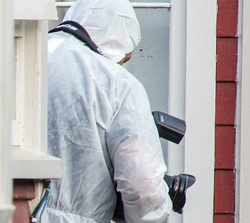
When a crime happens in When a crime happens in your neighbourhood there are inevitably going to be questions and worries from children. Some children are open about their concerns, their distress is clear and parents can be available with hugs, chats and lingering bedtimes. Other children aren’t so obvious in their need for extra support. Their behaviour may change subtly, but it isn’t always easy to spot. You may notice the following behaviours:
* Confrontational behaviour towards you or siblings
* Reluctance to go to bed, leave the house or be apart from you
* Refusal to follow requests that would normally not be an issue
* A drop or rise in energy and or noise levels
* Inability to concentrate
Parents are experts on their own children and will usually know what works well to calm them but here are some tips from family therapist and registered psychologist Julie Burgess-Manning to help in unusual circumstances:
7 Tips to Help Kids with Anxiety in Unusual Circumstances
1 It’s important to retain routines; get up at the same time, go to bed at the same time, keep mealtimes, school routines, after school activities the same.
2 Turn media off, repetition of disturbing scenes adds to anxiety.
3 Provide a calm and loving response; keep your adult worries away from children. If you are particularly upset: don’t talk about it with your children, get support from other adults you trust.
4 Keep normal disciplinary boundaries. If kids are pushing these, it is important that they know their parents are still in charge - the world is unpredictable enough without these changing.
5 Give reassurance but don’t overdo it. Too much reassurance means there is something to be worried about!
6 Creating narratives to explain what happened can be useful for younger children.
7 Let them talk about it, but don’t let it take over, use play to get their minds off it. Do the things that you and your children enjoy – distraction is a wonderful thing!
Photo Credit: Iain McGregor 'The Press'
 RSS Feed
RSS Feed